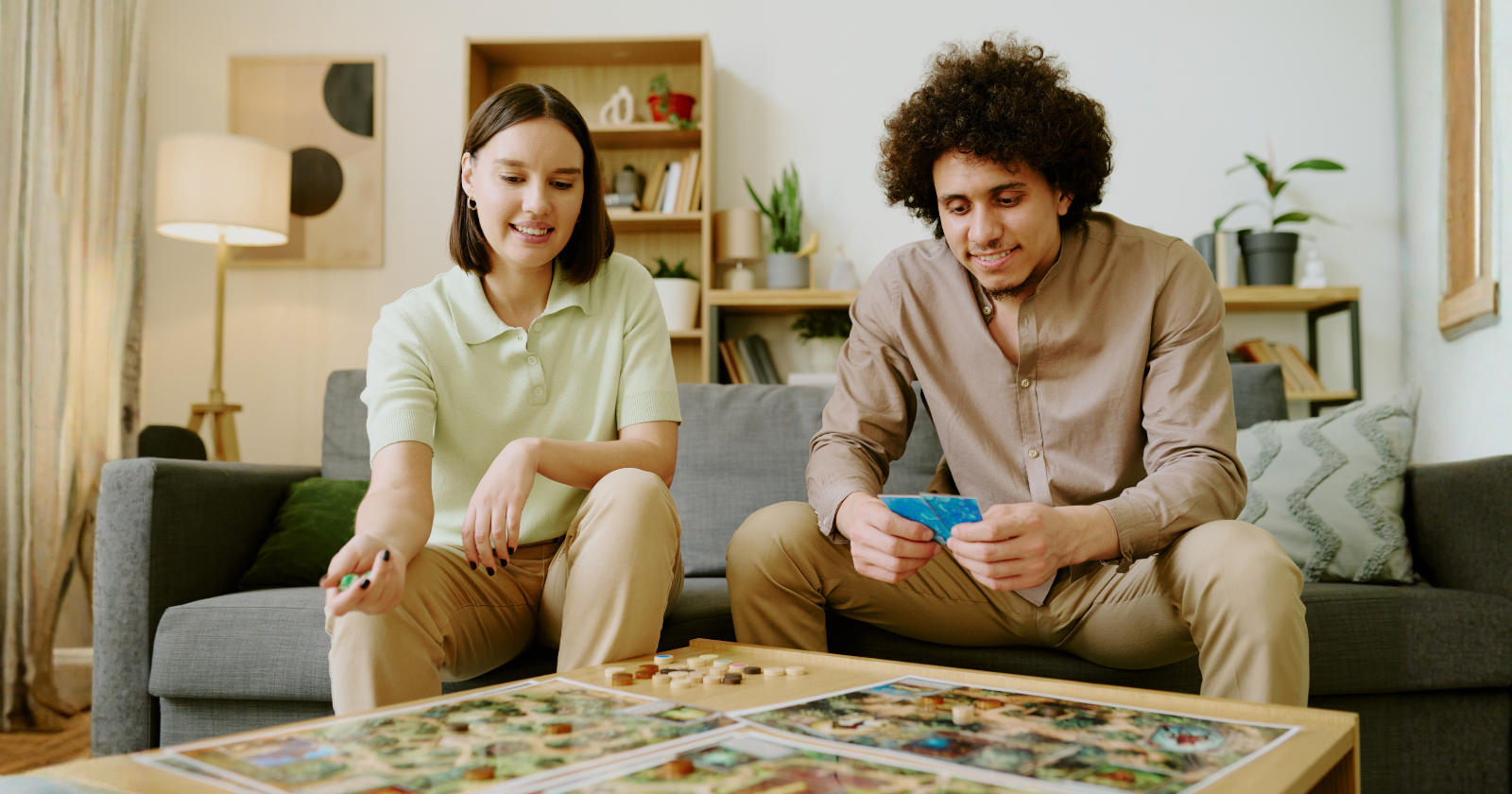Most adults have forgotten how to play.
We work, we take care of responsibilities, we exercise for health benefits, we socialize for networking. Everything has a purpose, a goal, a reason beyond just enjoying it.
But there are some adults who still play. Who have game nights, who goof around, who do things purely for fun with no productivity angle whatsoever.
And I’ve noticed something about these people: they’re different. They have qualities that make them stand out and seem increasingly rare in our serious, optimization-obsessed culture.
Here’s what sets them apart:
1. They’re genuinely curious about everything
People who play regularly ask a lot of questions.
Not because they’re trying to make conversation or impress anyone. They actually want to know things. They get excited about random topics. They go down rabbit holes just because something caught their interest.
My coworker who still plays video games is like this. He’ll spend an entire lunch break explaining the history of a game mechanic or the evolution of a genre. His enthusiasm is contagious because it’s real.
He’s curious about other things too. How things work, why people make certain choices, what’s happening in fields completely unrelated to his job.
That curiosity comes from maintaining a playful mindset. When you play, you explore. You experiment. You try things just to see what happens.
In contrast, adults who’ve stopped playing also stop being curious. They decide they know enough and stick to what’s familiar. That sense of wonder about the world just fades away.
Related Stories from The Artful Parent
- 8 things every kid who grew up eating dinner at 5:30 sharp understands about structure, family, and love that kids who ate whenever they wanted had to figure out on their own
- 8 things long-married couples do after the kids move out that quietly determine whether the next chapter feels like freedom or a sentence
- Before 40 you judge your parents for what they got wrong — after 50 you realize everything they got wrong was an attempt to fix something their parents got even more wrong and the whole chain going back 3 generations explains why you are exactly the way you are
But people who play stay curious. They approach life like there’s always more to discover. Learning things can be fun instead of just useful.
2. They handle failure without spiraling
When you play games regularly, failure is just a natural occurrence. You lose games. You mess up. You try things that don’t work. And you do it all without it meaning anything about your worth as a person.
Play creates a safe space to fail. The stakes are low. Losing a board game doesn’t make you a loser. Missing a shot in basketball doesn’t mean you’re incompetent.
So people who play develop this healthy relationship with failure. They can laugh at their mistakes and try again without shame. Their self-worth doesn’t depend on every outcome.
Compare that to how most adults handle failure at work or in relationships. We catastrophize and beat ourselves up. Eventually, we avoid trying new things because we might not be good at them.
People who play remember that failure is just part of trying. They’re comfortable with being bad at things because sucking at something is the first step to getting better. Sometimes you don’t even need to get better because the fun is in the doing.
- I’m 73 and I learned the hard way that staying in a marriage for the children doesn’t end when the children leave—it just enters a new kind of silence that’s even harder to sit with - Global English Editing
- Psychology says when a man stops asking his partner about their day, it’s not because he’s tired from work—it’s the first sign that curiosity has died, and curiosity is what keeps love alive long after attraction fades - Global English Editing
- My boomer mother hugs me and criticizes me in the same breath — “you look great but have you gained weight” — and that whiplash of warmth and wound in a single sentence is the most accurate portrait of our relationship I could ever paint - Global English Editing
3. They’re present in the moment
When you’re playing, you’re fully engaged. You’re not thinking about tomorrow’s meeting or yesterday’s argument. You’re here, now, focused on the game or activity in front of you.
People who play regularly maintain this capacity for presence in other areas of life too.
They can sit through a meal without checking their phone. Conversations happen without mentally planning what to say next. They can focus on one thing at a time instead of constantly multitasking.
My brother plays cards with friends every week. I asked him once why he loves it so much, and he said it’s one of the only times he’s completely present. Not thinking about work, not worried about the future, just there with the people at the table.
That ability to be fully present is rare now. Most of us are always somewhere else mentally, always half-focused, always thinking about what’s next.
Play teaches you to be where you are. To give your full attention to what’s happening right now. That skill transfers to everything else.
4. They connect with people more easily
Playing with others creates bonds faster than almost anything else.
When you play games together, you laugh, strategize, and experience shared moments of frustration and triumph. You let your guard down and show parts of yourself that don’t come out in normal social situations.
People who make time to play tend to have deeper friendships because they’ve learned how to connect through shared joy rather than just shared complaints or circumstances.
I’ve made some of my best adult friendships through playing. Board game nights, pickup basketball, even stupid online games. There’s something about playing together that creates real connection.
It’s different than networking drinks or coffee meetings where everyone’s performing their professional persona. When you’re playing, you’re just you. Silly, competitive, frustrated, delighted, fully human.
Adults who play understand this instinctively. They know that playing together builds relationships in ways that serious conversations never quite achieve.
5. They’re more creative in solving problems
Play is all about creative thinking.
You experiment and try different strategies. You look for unexpected solutions. You’re not locked into one way of doing things because you’re playing, which means the whole point is exploration.
People who maintain this playful approach bring that creativity to everything else. They see multiple solutions instead of just the obvious one and are willing to try unconventional approaches. They think outside whatever box everyone else is stuck in.
I’ve noticed this at work. The people who have the most innovative ideas are usually the ones who still make time to play. They haven’t lost that ability to think laterally, to make unexpected connections, to approach problems like puzzles to be enjoyed rather than burdens to be endured.
Play keeps your brain flexible. It reminds you that there are always multiple ways to approach any situation. That creativity is available if you’re willing to experiment and possibly fail.
6. They don’t take themselves too seriously
This might be the most obvious quality, but it’s worth stating clearly: people who play are comfortable looking silly.
They’ll wear ridiculous costumes for game night. They’ll do bad accents. They’ll dance badly at parties and make fools of themselves without it damaging their self-image.
Because let’s face it, play requires letting go of your dignity a little bit. You can’t play fully if you’re worried about looking cool or competent or impressive.
My neighbor hosts a monthly karaoke night in her living room. Everyone who comes is terrible at singing. That’s kind of the point. You get up, you belt out songs you can’t really sing, you laugh at yourself, everyone has a great time.
She’s comfortable being ridiculous because she plays regularly. She’s proven to herself over and over that looking foolish doesn’t hurt you, that being silly actually makes life more fun.
Most adults are so concerned with maintaining their image, with appearing competent and together and worthy of respect. People who play have learned that you can be all those things and still be willing to look stupid sometimes.
7. They maintain their sense of wonder
Finally, people who still play as adults haven’t lost their capacity for wonder. They can be delighted by small things and amazed by ordinary moments. The cynicism and jadedness that comes with age hasn’t hardened them yet.
I came across a video called “What You Lost The Day You Stopped Playing” that captures this perfectly. In it, they explain that “Play is not the opposite of discipline. It’s what gives discipline meaning. It’s how we learn to adapt, to connect, to create. How the mind stays curious and the heart stays soft.”
That last part really struck me. The heart stays soft. Because that’s what play does. It keeps you open, keeps you soft, keeps you capable of being moved and delighted and surprised.
Adults who’ve stopped playing have often hardened. They’ve become too practical, too serious, too focused on what’s useful or productive. They’ve lost that softness, that openness to joy.
But people who make time to play maintain their sense of wonder. They can still be excited about things and find magic in ordinary moments. They haven’t decided that wonder is childish or that being impressed makes you naive.
They understand that staying in touch with wonder is how you stay in touch with what makes life worth living.
The bottom line
Here’s what I’ve realized: making time to play as an adult isn’t frivolous or immature. It’s radical self-care in a world that wants to turn you into a productivity machine.
Playing keeps you curious, resilient, present, connected, creative, humble, and full of wonder. Those are rare qualities because most adults have convinced themselves that play is something you grow out of, that serious people don’t waste time on activities with no practical purpose.
So if you’ve stopped playing, start again. Join a recreational sports league. Have a game night. Take an improv class. Do something purely for fun with no goal beyond enjoying yourself.
You might feel silly at first. You might feel like you’re too old for this, like you should be doing something more productive with your time.
But watch what happens. Watch how your perspective shifts. How you start seeing possibilities instead of just problems. How you connect more easily with others. How your heart stays soft instead of hardening.
Play isn’t childish. It’s what keeps you fully human.
And in a world that’s trying to turn everyone into efficient, optimized, productivity-focused machines, staying fully human is an act of resistance.



